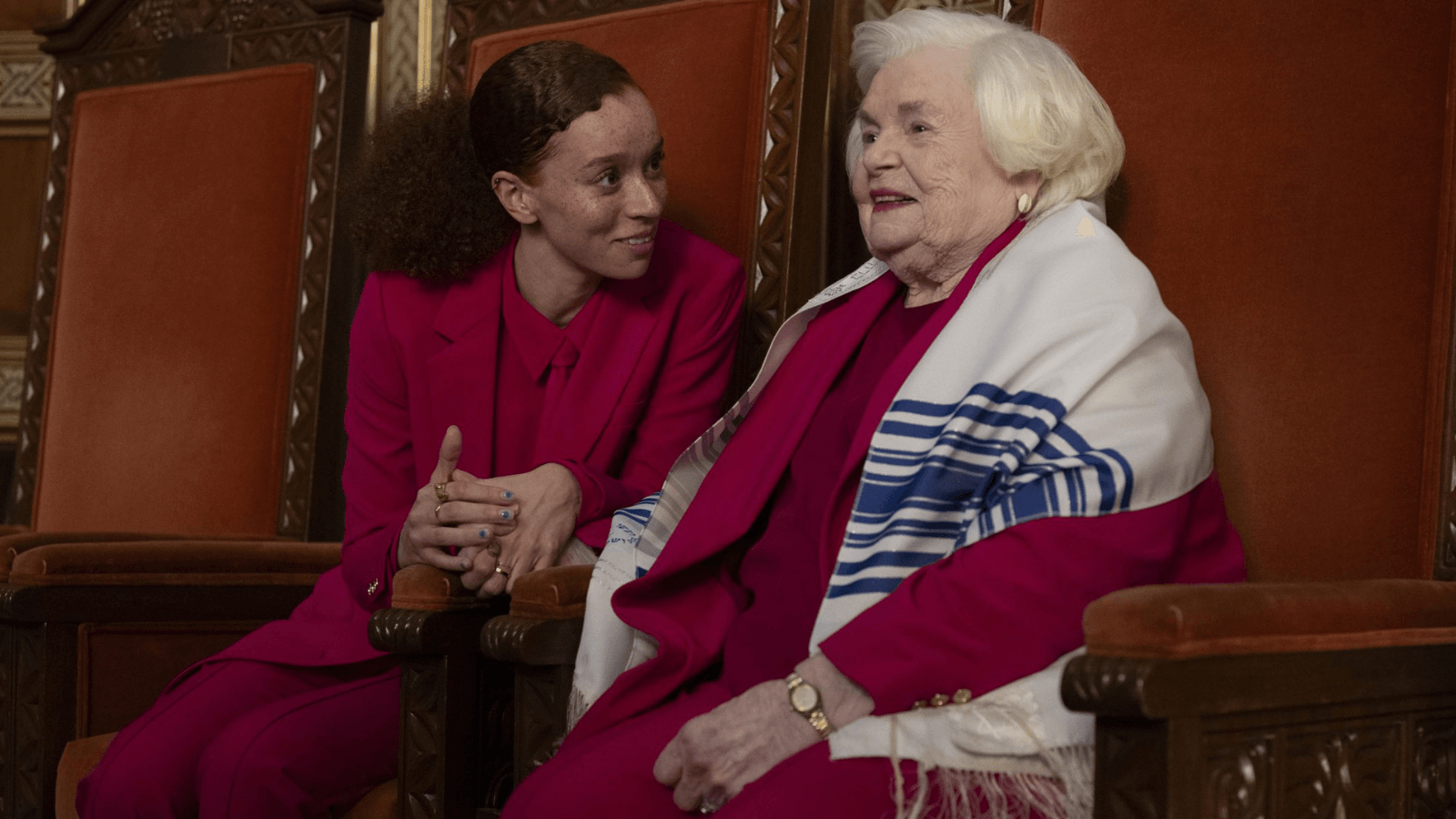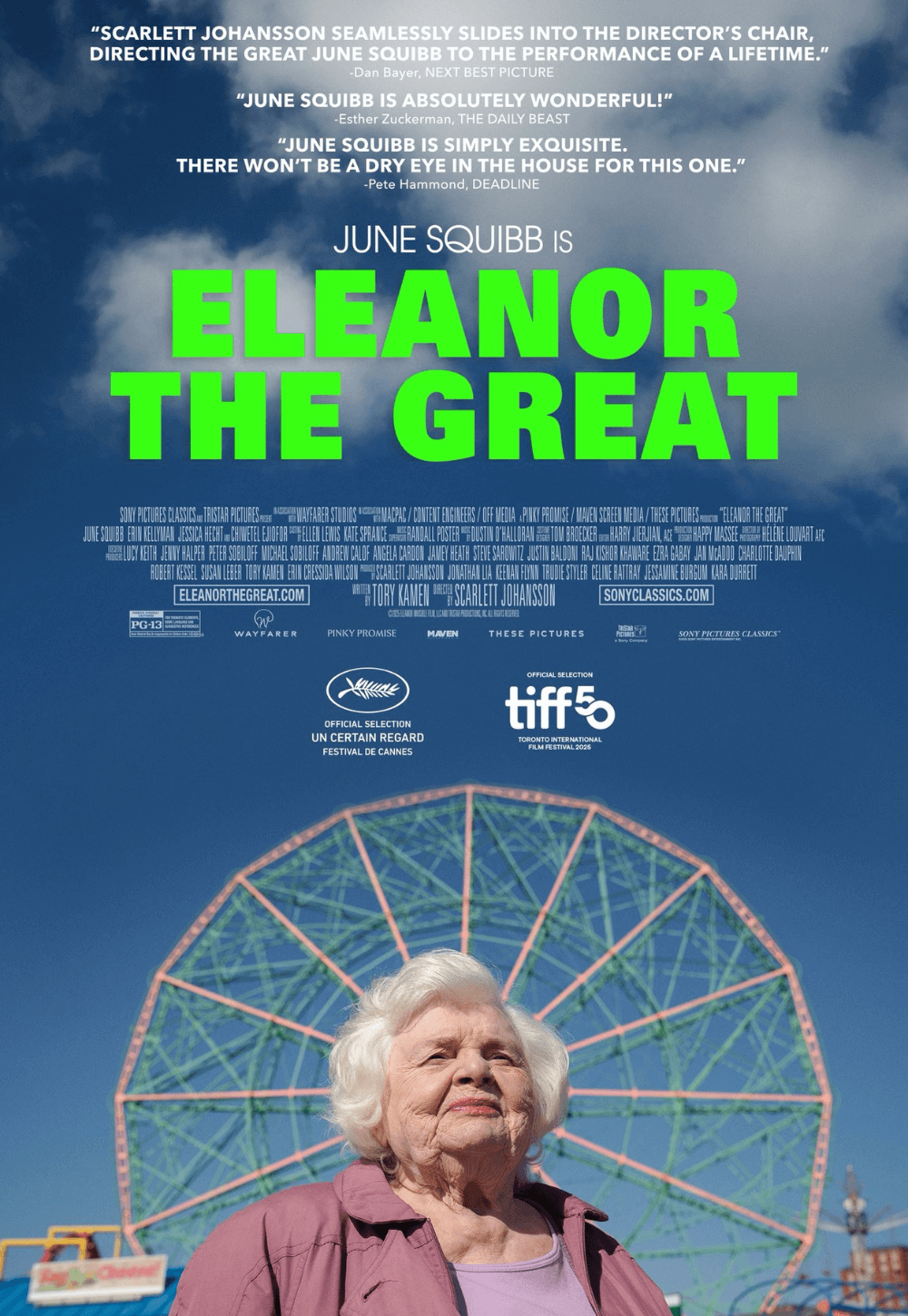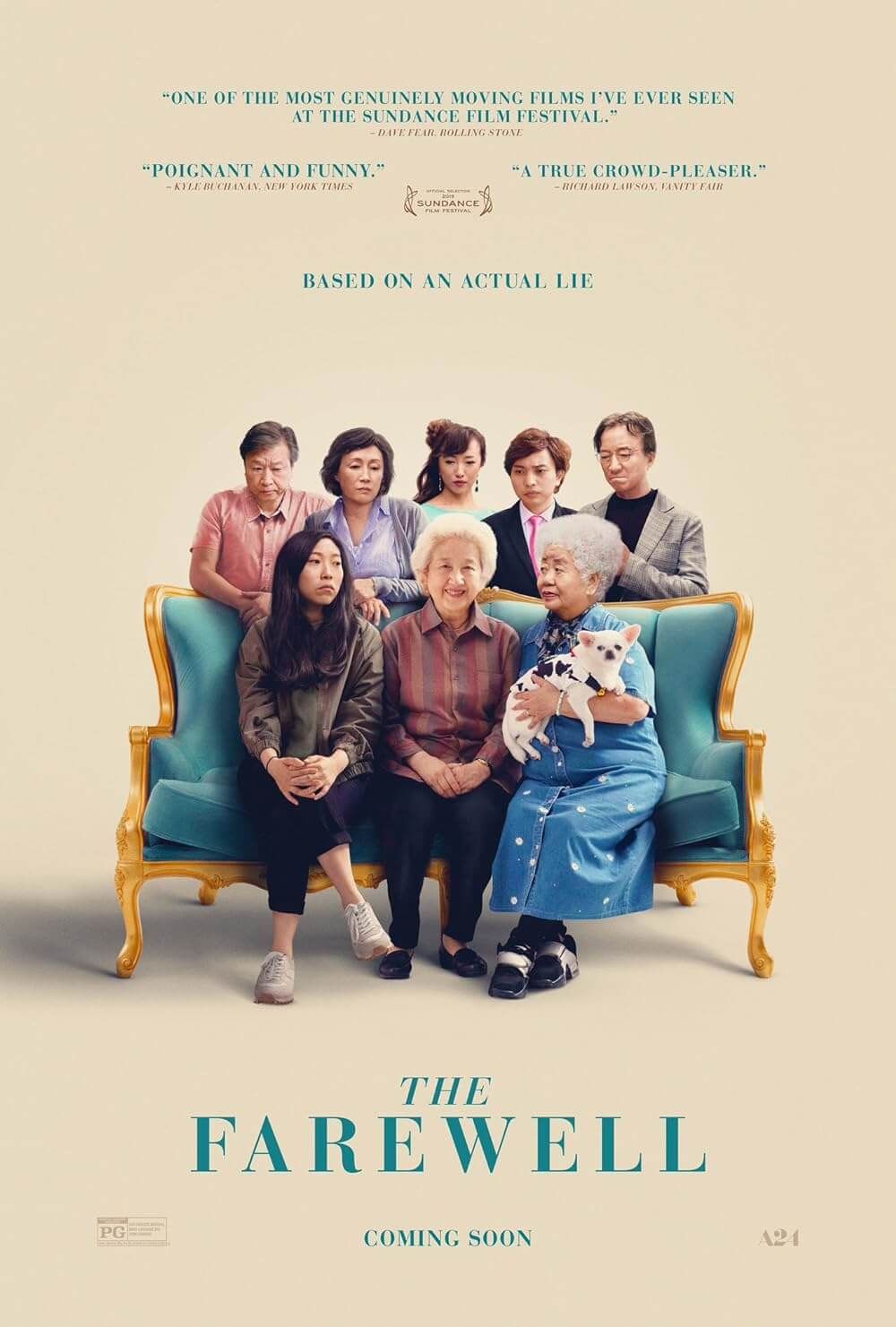
Eleanor the Great
By Brian Eggert |
Scarlett Johansson makes her directorial debut with Eleanor the Great, a modest portrait of grief with comic undertones, propelled by a punchy, cantankerous, and wounded performance by June Squibb. The 95-year-old star of About Schmidt (2002) and Nebraska (2013) is sharp as ever, delivering sarcastic barbs and dry wit; however, she’s game for the film’s more dramatic scenes as well. Johansson delivers a serviceable first feature, adopting a familiar indie tone and nondescript visual technique. But the material, written by Tory Kamen, struggles to find a harmony between the lighthearted humor of the first half and the unpacking of sorrow, deception, and Holocaust survivor stories in the second. An obvious comparison might be last year’s A Real Pain, which handled this dynamic with far more nuance and deeper character work.
Squibb plays Eleanor Morgenstein, a nonagenarian who, for many years, has lived with her best friend, Bessie (Rita Zohar), a Holocaust survivor. Two peas in a pod, they do everything together, from sleeping in the same room to grocery shopping. So when Bessie dies, Eleanor must move to Manhattan to live with her daughter Lisa (Jessica Hecht) and grandson Max (Will Price), who do not have time for her. The story races through Bessie’s immediate absence in Eleanor’s life, whereas spending more time on the abyss of Eleanor’s loss may have better justified what happens next. Lisa signs Eleanor up for a class, and by accident, she ends up in a group for Holocaust survivors. When it’s her turn to share, Eleanor makes an impulsive decision to use Bessie’s stories as her own.
Enter Nina (Erin Kellyman), an observing journalism student in the group who wants to interview Eleanor about her (meaning Bessie’s) experiences escaping from Poland to the United States. Nina’s mother died recently, and she was Jewish, so interviewing Eleanor brings her closer to her mother. Nina hopes the resulting paper will capture the attention of her father, Roger (Chiwetel Ejiofor), a famous news anchor who’s disengaged from his father-daughter relationship and has avoided any meaningful discussion about his late wife. The friendship that develops between Nina and Eleanor is sweet, allowing Nina to explore her Jewish identity, while Eleanor shows some hesitation about sharing Holocaust stories with a wider audience, fearing she will be caught. Inevitably, Eleanor’s deception comes out. But it’s all resolved without much fuss.
Johansson keeps the material light despite its weighty themes of mourning, remembrance, and the Holocaust. None of the relationships feel thoroughly developed or have time to percolate. Perhaps the desire to deliver a movie in the 90-minute range resulted in some more substantive scenes being left on the cutting-room floor. At the very least, Johansson includes effective flashbacks of Bessie telling Eleanor about her memories from that time, even if they’re too brief and barely have time to register before another light moment of relief. Many of the more potent emotions feel muted by Johansson’s familiar approach, reminiscent of countless mini-major pictures of this ilk—see Little Miss Sunshine (2006) or The Farewell (2019). Still, given Johansson’s family roots in Eastern Europe, including ancestors who died in the Warsaw ghetto and concentration camps, this is undoubtedly a personal story for her.
Like many actor-turned-director projects, Eleanor the Great prioritizes the performances, whereas the subdued aesthetics serve only the story. There’s nothing particularly notable about cinematographer Hélène Louvart’s capable lensing or the indistinct score by Dustin O’Halloran, except that they’re relatively invisible. It’s Squibb and Kellyman who receive the most attention, with the former offering a range of emotions, from biting humor to incredible loss. Squibb has only recently graduated from minor supporting parts to lead roles (see last year’s Thelma), and she’s a pleasure to watch. Johansson’s admiration for her star is palpable, even if the first-time director doesn’t give the titular character much of an identity of her own.

Thank You for Supporting Independent Film Criticism
If the work on DFR has added something meaningful to your love of movies, please consider supporting it.
Here are a few ways to show your support: make a one-time donation, join DFR’s Patreon for access to exclusive writing, or show your support in other ways.
Your contribution helps keep this site running independently. However you choose to support the site, please know that it’s appreciated.
Thank you for reading, and for making this work possible.
Brian Eggert | Critic, Founder
Deep Focus Review







